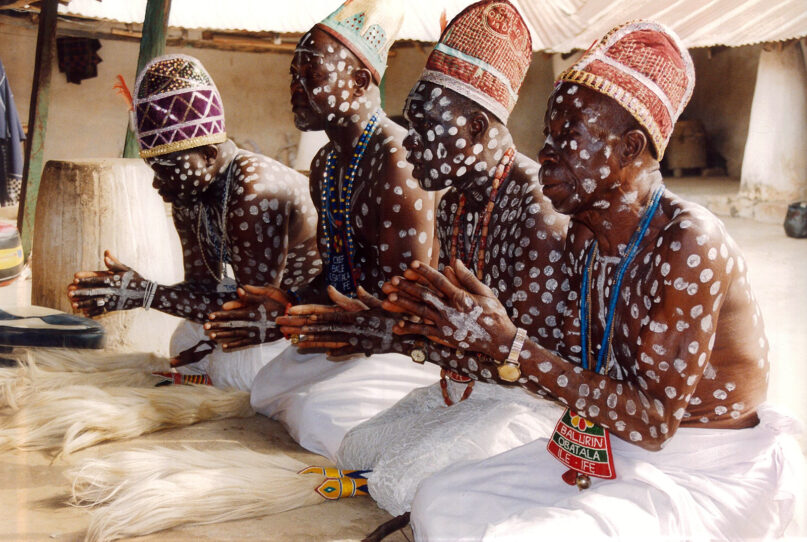(RNS) — There are two moments in recent history to which I’d like to call Black Christians’ attention.
In Beyoncé’s July 2020 movie “Black Is King,” she continued a theme she began with her 2016 landmark visual album “Lemonade”: her association with, and possible initiation into, the West African religion of Ifa. Some Christians responded by calling “Black Is King” “blasphemy, satanic, unbiblical” because of the supposed representations of “false gods” and “pagan religions.”
RELATED: 5 faith moments to watch for in Beyoncé’s ‘Black Is King’
Beyoncé’s supposedly “satanic” images actually honor African deities such as Het Heru, a Khemetic goddess associated with the moon, women’s menstrual cycles and, by extension, fertility, but the references to African deities have particularly riled Black Christians, who take them as confirmation that the star, popular among their youth, is practicing witchcraft.
A few months later, as Americans waited for the results of the 2020 election, noted televangelist and presidential adviser Paula White, in a spirit-filled preaching style appropriated from Black church traditions, called upon “angels from Africa and South America” to help her claim victory for President Donald Trump. All out in front of Jesus and everybody, she preached down heaven, speaking in tongues and extending her hand to Ethiopia for salvation.
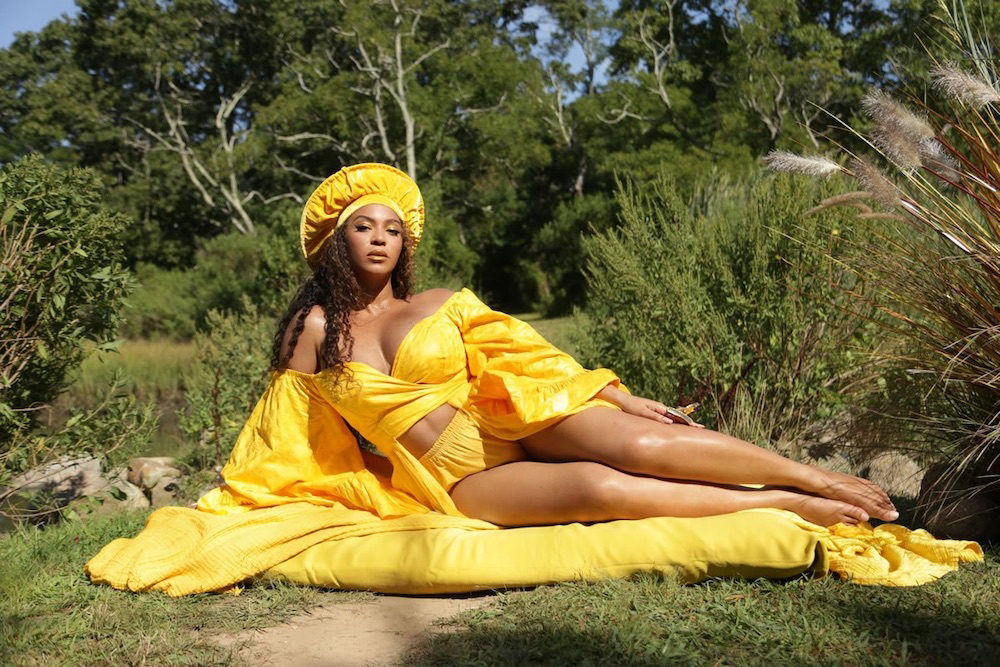
Beyoncé depicted as Oshun in her visual album “Black is King.” Image via Disney Plus
In the first case, Black Christians, is it not curious that when met with Beyoncé’s imagery and spiritual narratives of your own African traditions, your response is that it must be evil? Does it not seem troubling that the cultures from which you come are portrayed as demonic while the history and culture of Western civilization are exalted over us all?
In the second: What manner of mental slavery and colonization does a Eurocentric form of Christianity have over Black evangelicals today that they would credit white ministers who would tell you that African spirituality is ungodly and even demonic — and then look there for urgent help when the rubber meets the road?
RELATED: African spirituality offers Black believers ‘decolonized’ Christianity
African people in the United States have long been brainwashed to believe that Africa held nothing of value. Our long-established societies, cultures, religions and customs were presented as savage, heathen. We were told to be grateful for our enslavement. We were told that enslaved Christianity was better than living as free African people. We were terrorized into giving up our names and much of our spirituality.
Even in this trauma, African people in the Americas reshaped the predominant Christianity. We mixed and remixed a slave religion with our African spiritualities and those we encountered in the New World into a faith that emphasized freedom.
Despite the mass conversions of the Second Great Awakening, and the persistent missionary work of Catholic and Protestant clergy, African Americans retained their gods, cleverly and defiantly fusing them with Catholic saints and a Christian Holy Spirit.
These cultural retentions are still in evidence in Black Christian denominations as well as white ones — that Black preaching style that White so brazenly appropriates is based on the African call and response tradition. Being overtaken with the Holy Spirit connects Pentecostals of all races back to Africa.
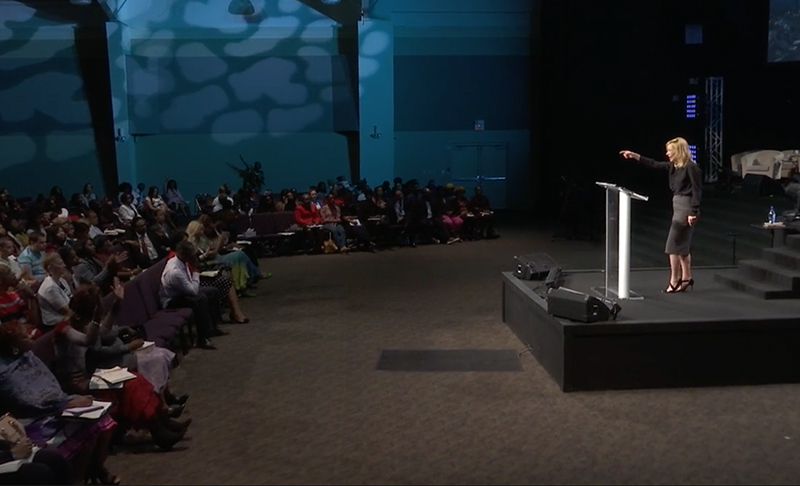
Pastor Paula White preaches at New Destiny Christian Center in Apopka, Florida. Video screenshot from NDCC.tv
And there is the music. What would the Black church experience be without that organ and tambourine, that rhythmic hand-clapping and stomping feet? These African elements give life to your Christian doctrine and accentuate your love for Jesus. Yet outside of a Christian context, they are taken as pagan and harmful.
In a world that has been gaslighted into believing that civilization has always been centered in Europe, most of us can’t conceive of what pre-colonial Africa looked like. The telling of world history, ancient civilizations and world cultures is maliciously narrow and almost always excludes the contributions of Nile Valley civilizations, never mind the rest of the vast, wealthy and diverse continent.
These lies are the reason some Black Christian pastors call African spirituality demonic.
Black Christians, your Bible tells you how important it is to honor the God of your fathers Abraham, Isaac and Jacob. Your Bible emphasizes that Jesus is of the house of King David. You are Christians because the Apostle Paul connected you to that ancestral line, though you were a gentile, and thus would otherwise have no seat at their Jewish family table.
Those connections are there because ancestral lineage matters. You have been told to respect other people’s ancestral stories, but to dismiss and even demonize your own. You are discouraged from even knowing about your African history. This is the insidious result of a white supremacist Christianity that permeates American soil.
In America, we have been led to believe that Euro-American history is better than ours, purer, more godly — that “the white man’s ice is colder,” as the Black vernacular has it.
Black Christians, many of you are so afraid to even learn about African spiritualities lest they keep you out of the kingdom of God. You won’t even glimpse the rich spiritual traditions of Benin, Congo, Angola, Nigeria, Sudan, Ethiopia.
Christian pastors such as the Rev. Jamal Bryant teach that you can’t even burn sage. You cannot honor your ancestors, wear eleke beads, do yoga, get a spiritual reading from a mambo or Babalawo. You can’t buy your feminine hygiene products from a Black-owned business because the owner mentions crystals, herbs and sage. Your miseducation makes you believe that practitioners of African spiritualities worship these objects. Do you worship the cross or your Bible?
Oh, and you can’t listen to Beyoncé anymore. Bummer, that one.
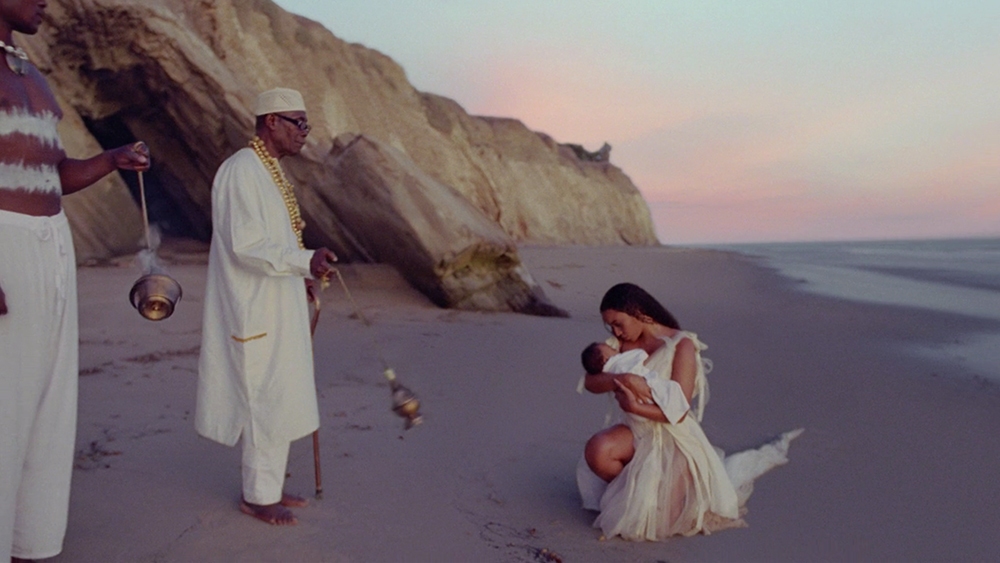
Beyoncé carries a child in the beginning of her visual album “Black is King.” Image via Disney Plus
Black Christians, this religious zealotry demands an unsustainable double consciousness. W.E.B. DuBois described this schizophrenic condition that Black people have had to contend with as a byproduct of being a “problem people.” He described it as a two-ness, of constantly looking at oneself from within and from without. It is disorienting, and dear Black Christians, it is time to give up that ghost.
Black Christians can reclaim the African-ness inherent in Christianity, but you must first come out of that wilderness that deprives you of your culture. You can acknowledge that Christianity borrows heavily from the Nile Valley cultures and religions from which it was born, appreciate and value the Egyptian and Ethiopian presence in your Bible. You can learn about Ifa, Vodun and Khemetic spirituality without the fear instilled by colonizers who tried to buy your soul with your bodies.
This is where the idea that African spiritualities are demonic came from. Let it go, and get free! Acknowledging that our faith is a blend of our African-ness and Christianity is not blasphemy, it is an acknowledgment of your ancestors who survived the Middle Passage and slavery.
Those ancestors retained remnants of African spirituality outside of the master’s understanding for you. These were spiritual tools our ancestors bequeathed to us to survive the terror of slavery, revolt and resist ongoing oppression. Our oppressors would have us be docile with their white supremacist-infused Christianity. Instead, we remember these spiritual tools. We celebrate them. We call upon them.
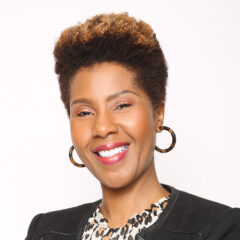
Darnise Martin. Courtesy photo
White evangelical Christianity is imploding from the weight of its own hypocrisies. Don’t go down with a ship that doesn’t recognize your African blended Christianity: It might be just the thing that saves you after all.
(Darnise Martin is a clinical associate professor of African American studies at Loyola Marymount University in Los Angeles. This story is one in a series by Religion News Service about New Religious Movements in American religion, produced in partnership with Sacred Writes a Henry Luce Foundation-funded project hosted by Northeastern University that promotes public scholarship on religion. The views expressed in this commentary do not necessarily reflect those of Religion News Service.)
